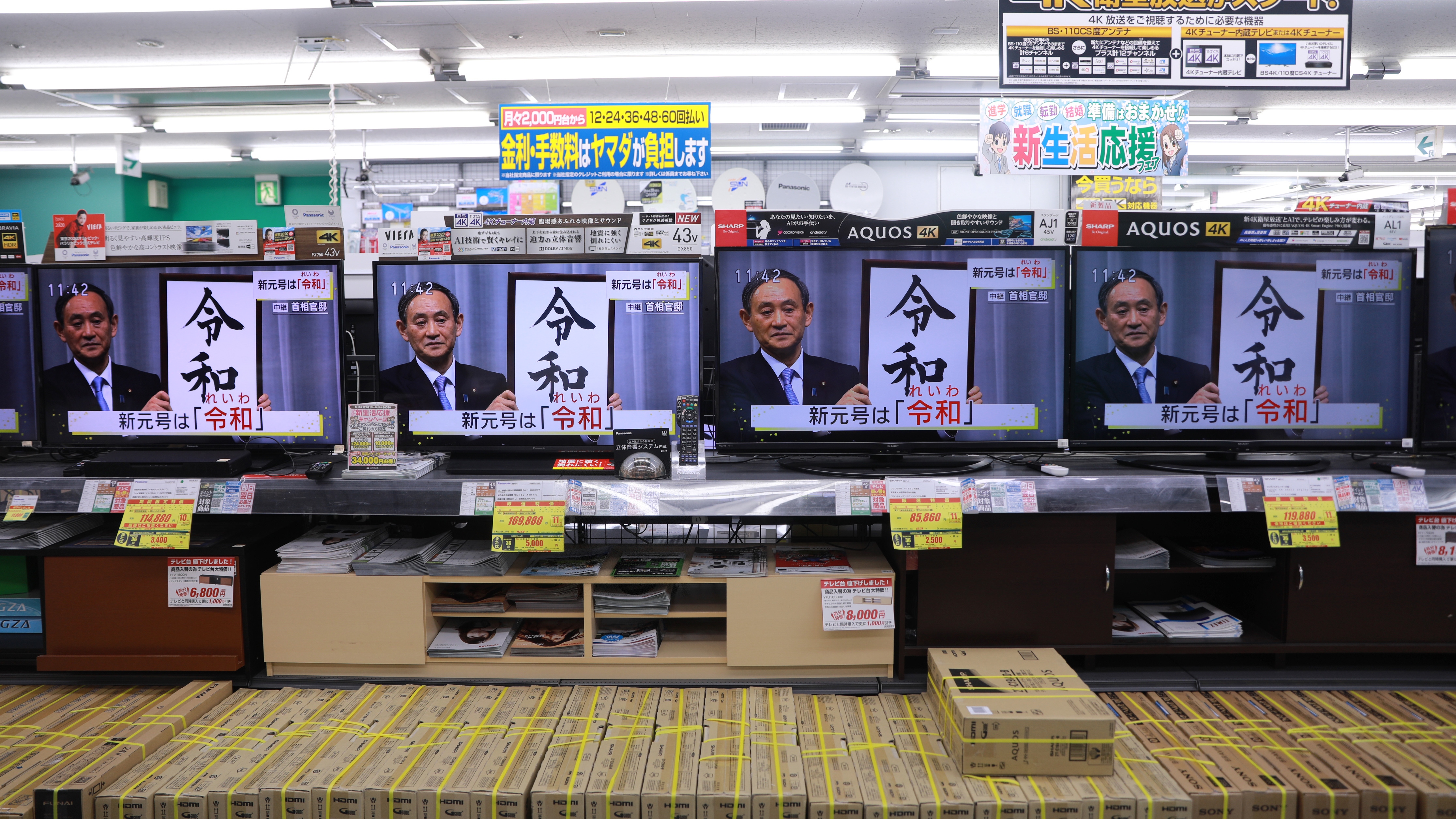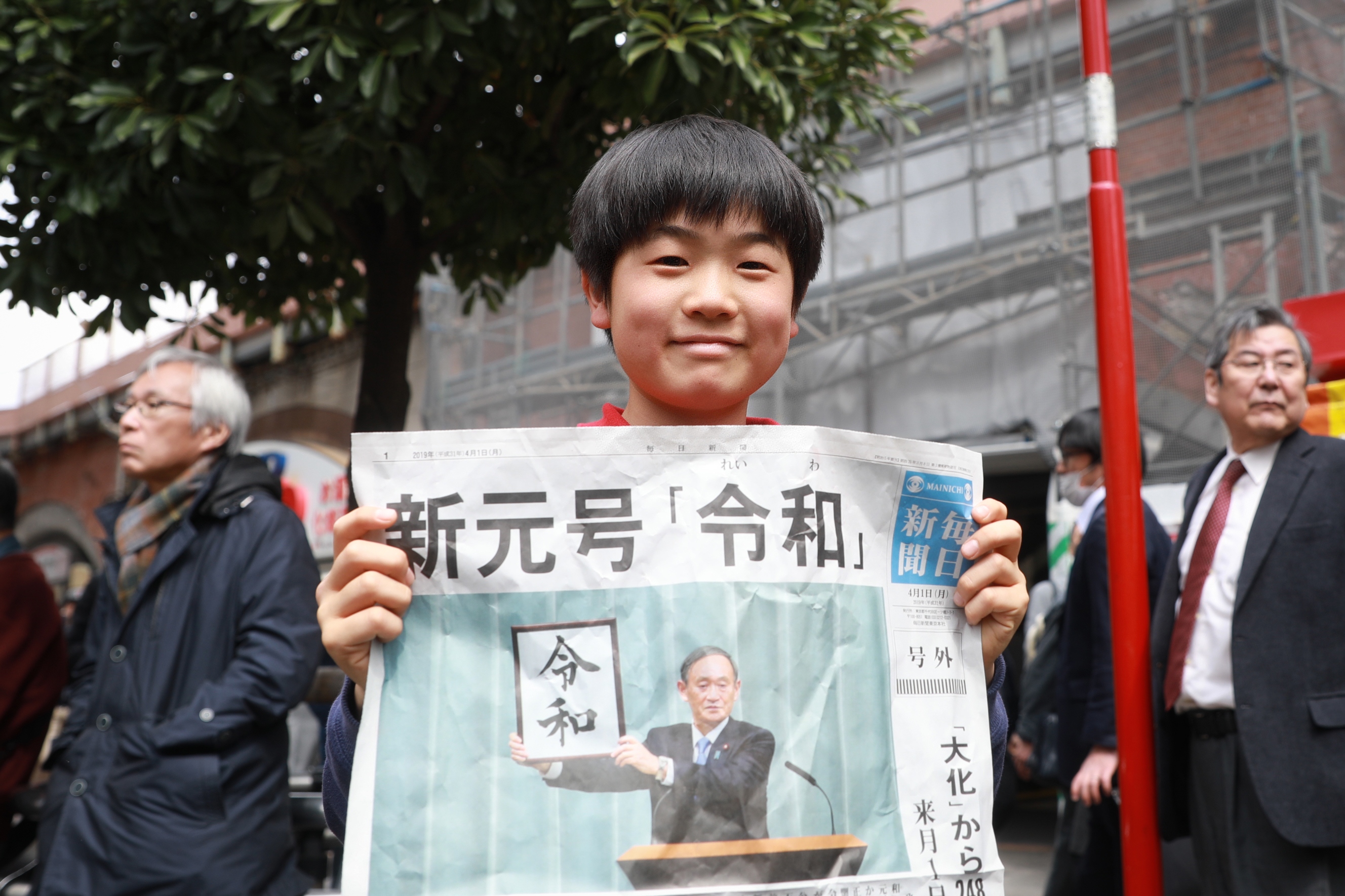Understanding 'Reiwa' through the perspective of the 'Asian civilization dialogue'
- By Wang Peng
 0 Comment(s)
0 Comment(s) Print
Print E-mail China.org.cn, April 4, 2019
E-mail China.org.cn, April 4, 2019

The Japanese government has unveiled the name of its new era, "Reiwa," which literally means "pursuing harmony." This comes just before its soon-to-be Emperor Naruhito succeeds the Chrysanthemum throne on May 1. His father, the current Emperor Akihito, is abdicating, with his era of "Heisei" coming to an end the day before.
Chinese netizens debate the intellectual sources of "Reiwa"
Although the selection of the name was top secret, the Japanese public and its neighboring countries were eager to guess what it was before it was officially announced. When the decision came after a series of highly guarded closed meetings and intense media speculation, Japanese at home and abroad had different perceptions of it and debated its significance.
The two characters "Reiwa" in Chinese, namely "ling" (令, order, command) and "he" (和, peace, harmony), were both commonly used by Chinese emperors in ancient times. Looking back in Chinese history, many Chinese rulers had chosen "ling" or "he" as the name of their reign or era. In modern Chinese language, these terms are also commonly and frequently used in people's daily lives, signifying best wishes for peace and harmony.
What might "shock" Chinese netizens, or even "irritate" some who have a stronger sense of nationalism, is not the name itself, but the Japanese official interpretation on how and why they chose those two characters.
Officials emphasized that the two characters were special and totally different from their counterparts in the past because they came from "original Japanese classics" – "The Poem of Manyoshu." This is an anthology of poems that enjoys the same privilege and fame as "The Book of Songs" (the oldest existing collection of Chinese poetry).
I am neither an expert of ancient Japanese literature nor a scholar of the history of Chinese literature. Therefore, judging whether "ling he" (Reiwa) really comes from a "pure, original and ancient Japanese classic" or rather, from its Chinese sources through a strict Foucaultian "archaeology of knowledge," is beyond my knowledge and research abilities. However, assuming the validity of both Japan's official statement and Chinese netizen's "textual criticism," we may solve this cognitive bias and consequent cultural-nationalist accusation through a new perspective – the "Asian values" and the "Asian civilization dialogue."
Reviewing "Reiwa" using the "Asian civilization dialogue" approach
A conference for dialogue among Asian civilizations is scheduled in Beijing in May, which is a good opportunity for Asian nations to get together to discuss how to better promote exchanges and mutual learning among Asian civilizations.
In China's view, the differences between civilizations or nations are not excuses for disputes, conflicts or war, but instead a reason and opportunity for further dialogues.
Culture and civilizations themselves are organic entities, ever fluid, and constantly changing and melding. In view of this, there are very few (if any) civilizations that can be called "pure" or "totally original," rather, they are all a mixture of different cultures in history. In other words, "civilization" itself is the product of dialogue and interaction among various groups of people in history.

Let's review the current case of China and Japan, especially the heated online debate about the intellectual sources of "Reiwa," under this cultural lens.
Perhaps it is still too early to say that China and Japan have already entered into a "community with a shared future," but most would agree that these two great nations belong to the same great cultural circle – the East Asian Confucian Civilization. However, as time went by, China and Japan gradually developed their own unique cultures, which while different, still shared the similar intellectual source and moral doctrines.
From this perspective, Japan's choice of "Reiwa" demonstrates the long history of friendly exchanges and profound cultural communications between China and Japan.
If we take a much broader view, the online debate of the term "Reiwa" may serve as the best example of China's insight that "different cultures and civilizations should not be arrogant and disdain each other, but rather learn from each other."
Thousands of years ago, the ancestors of the Chinese and Japanese enjoyed a highly developed level of people-to-people exchanges and cultural communication, and hence built a splendid civilization in East Asia.
Japan has more recently been trapped by its own militarism and expansionist ambitions in the past century. Now, China is looking forward to embracing a peace-loving Japan, but one which also recognizes and reflects on its history of bitter aggression.
As "Reiwa" suggests, now is the time for the two great Asian nations to join hands to build a "community with a shared future" in a booming East Asia through an open and sincere dialogue.
Wang Peng is an associate research fellow at the Chongyang Institute for Financial Studies, Renmin University of China, and a researcher at the Charhar Institute.
Opinion articles reflect the views of their authors only, not necessarily those of China.org.cn.
If you would like to contribute and have specific expertise, please contact us at opinion@china.org.cn.






Go to Forum >>0 Comment(s)